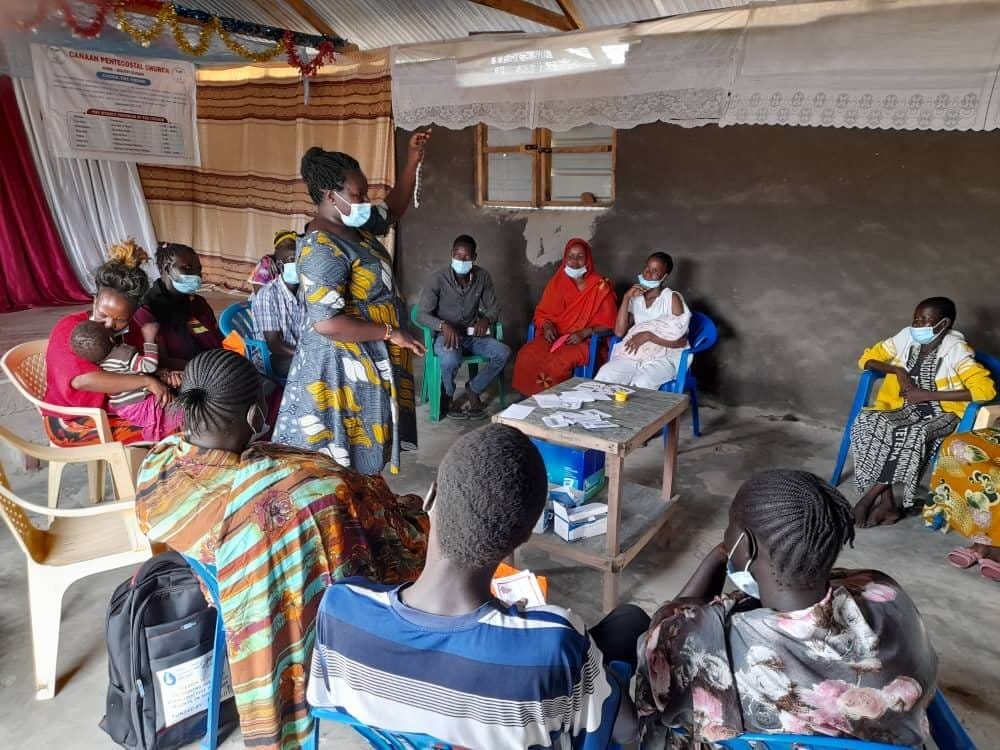Behavioral Science Advances Reproductive Health Outcomes: ideas42 Heads To ICFP
Making progress in reproductive health requires tenacity, innovation, and bold ideas. Behavioral science allows us to do just that. Shifting social norms, catalyzing social movements, and creating systemic behavior change is no easy feat, but behavioral science provides us with an evidence-based methodology that is revolutionizing how we approach global health challenges.
For nearly a decade, we’ve been using behavioral science to advance reproductive health outcomes in projects around the world. November 15-16th, we’ll be presenting our innovative methodology and out-of-the-box solutions at the International Conference on Family Planning (ICFP) in Pattaya, Thailand. Note: If you will not be attending the conference and would like more information on these projects or presentation decks, please contact us at gh@ideas42.org.
Stay up-to-date on our latest innovations in global health! Follow us on LinkedIn and Twitter.
Our presentations at ICFP include:
Applying behavioral design to enhance self-care and empowerment in family planning in Bangladesh
Summary: Despite the high use of contraceptives, many female garment workers in Bangladesh still have unwanted pregnancies. Using behavioral design, we developed solutions to help women adhere to their preferred contraception method using enhanced pill packaging with visual instructions, reminder stickers, and an interactive voice response (IVR) service with reminders and support with side effects or method switching.
Date: Tuesday, November 15, 2022, 10:00 AM – 12:00 PM ICT
Location: PEACH Pre-function Area
Applications of Best Practices to Improving Quality of Care Using Behavioral Design
Summary: Behavioral design can be a powerful tool for developing promising new approaches to improve the quality of sexual and reproductive health (SRH) care. We’ll share three brief case studies from Uganda, Malawi, and Burkina Faso that demonstrate the power of behavioral design in generating promising, scalable innovations that improve the quality of care and SRH outcomes.
Date: Wednesday, November 16, 2022, 10:15 AM – 11:35 AM ICT
Location: PEACH Pattaya 4
Summary: To address high rates of discontinuation of family planning methods in Malawi, we used behavioral design to develop solutions that better support women to choose and access the method that best meets her needs. These solutions, which included interactive, gamified counseling, a reference sheet for providers to facilitate postpartum family planning conversations, and a method referral card to support follow through on choices, resulted in a 34 percentage point increase in effective referrals for women to take up family planning methods and a 63 percentage point increase in providers discussing method switching with women.
Date: Wednesday, November 16, 2022, 14:15 PM – 5:35 PM ICT
Location: Beach Hotel Royal Summit Chamber A
Click here to view the presentation slides.
Addressing power, expectations, and provider bias to promote respectful care in Zambia
Summary: Mistreatment of women during childbirth in health facilities, especially in the form of health providers insulting, scolding, or treating clients harshly, is a documented problem worldwide. Using behavioral design, we developed solutions that decreased instances of mistreatment and improved a woman’s experience of care, particularly through increased pain management support.
Date: Wednesday, November 16, 2022, 12:30 PM – 2:30 PM ICT
Location: PEACH Pre-Function area
Click here to view the presentation poster.
Adolescent peer referral to family planning services: a randomized controlled evaluation in Uganda
Summary: To increase access to youth-friendly counseling and family planning services, we used behavioral design to create solutions that support adolescent girls to act as advocates within their peer groups: sharing, discussing, and encouraging peers to visit clinics to learn more. Together with solutions that create a welcoming environment in clinics, this led to a 45% increase in family planning uptake by adolescent clients.
Date: Tuesday, November 15, 2022, 12:40 PM – 14:00 PM ICT
Location: Grand Hotel Jomtien 2
Summary: To increase men’s engagement in conversations about family planning and support for their partners’ choices to access reproductive health services, we used behavioral design to develop an interactive game that creates a safe space to explore weighty topics and decisions that may counter social norms in Uganda and South Sudan. These experiences underscored that games can promote comfort and familiarity with sensitive topics, open the door to difficult conversations, and act as crucial channels to empower men and women to jointly decide their families’ reproductive futures.
Date: Wednesday, November 16, 2022, 10:00 AM -12:00 PM ICT
Location: PEACH Pre-Function Area
Click here to view the presentation poster.
Establishing an enabling environment for men and boys in health clinics
Summary: Men and boys often play pivotal roles in their partners’ use of contraceptives, but have distinct needs and priorities that programs and services don’t always meet. In particular, clinics must provide a safe and enabling environment where men and boys can learn and access services. Using behavioral design, we identified the barriers that prevent men and boys from accessing services themselves and developed solutions in Zambia and Uganda to create clinic environments that support them to learn about family planning, access services, and envision a positive role for themselves in supporting their partners and families.
Date: Wednesday, November 16, 2022, 16:15-17:35 ICT
Location: PEACH Pattaya 6
Thank you to our partners and the community members that have made this work possible. We’re excited to share this work with you all and look forward to continuing to learn alongside you as we embark on new ways that behavioral science can advance global health outcomes.
For more information on our global health work, please visit ideas42.org/global-health or contact gh@ideas42.org.



